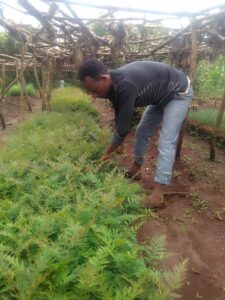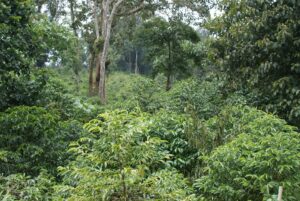A Revelation
Koteshwaramma and her husband Venkateshwar Rao are farmers from Kopparu village in the Guntur district of Andhra Pradesh. Like many farmers around their village and district, they have been cultivating chilli on their one-acre rented agricultural land.
To give an overview, chilli cultivation has become very input intensive over the years, which means that the risks involved in growing chilli crops have also increased. Over the years, climate change, unpredictable and extreme weather events, have made chilli crops increasingly susceptible to new viruses and pest infestations. In fact, there have been many cases of virus wiping out entire chilli fields of farmers, forcing them to go for re-plantation.
Without adequate information about changing climatic conditions, unpredictable markets, and higher costs of production, Koteshwaramma and Venkateshwar were faced with a dilemma on whether to plough on. In 2019-2020, with the support from the Andhra Pradesh Government DoAC and RySS Community Extension functionaries, they adopted climate resilient natural farming methods to cultivate chilli crops. Some of these practices include using locally available resources to apply them to chilli crops, spraying botanical decoctions, extracts, and a wide variety of intercrops in chilli to help contain virus and pest infestations.
Within a year of their transition to natural farming, Koteshwaramma and Venkateshwar Rao have seen significant success with 25 quintal of red chilli yields, and minimal farming expenses. Their success has become an inspiration for many farmers in and around their communities, and also across the state. There have been media articles written about this farming couple, and Koteshwaramma was also awarded as the ‘Best Farmer’ in the chilli crop and natural farming category.
While Koteshwaramma and Venkateshwar Rao have continued to practice natural farming methods of chilli cultivation, the Digital Green team has followed them over a period of the cropping cycle to document their best practices in video form. This has now become a 12-part video series of Package of Practices. When we ask Koteshwaramma about her success in chilli cultivation, she promptly says that it has been due to the timely advisory and messages that she received on the climate resilient, natural farming methods of chilli cultivation. She also highlights that the support that she received from the RySS extension functionaries is complemented by the video dissemination that she attended to enhance her knowledge on her practice on natural farming.
There has also been a great response from farmers across the state about the DoAC-RySS and Digital Green Green Chilli Package of Practice video series. Featuring a progressive woman farmer, Koteshwaramma has moved many to adopt natural farming practices and learn more about it.
After the pandemic hit, as in-person video screenings became less frequent, the videos that would otherwise be shared within group settings were shortened and shared with farmers via Digital Green’s Whatsapp Chatbot service.
Koteshwaramma and Venkateshwar Rao are just one example of many smallholder farmers across the state and the country that are dependent on their farming practices as a source of their livelihoods. Timely advisories and the proper dissemination of information and knowledge is imperative in empowering farmers to be more resilient in their farming practices. You may ask, how does this targeted advisory happen given the multitude of challenges that farmers may face across different geographical locations and weather conditions. More importantly, what is the larger story behind this direct impact on farmers day-to-day? The response has to be innovative, and farmer-focused technology that values a human-centered approach.
A Human-Centered Approach
As an organization working in the space of leveraging technology to empower smallholder farmers, who are amongst the poorest and most vulnerable groups, we have been on the quest to focus on solutions that directly impact farmers. With the continuing success of the community-based video approach, we have learned that a human-mediated approach to these videos, featuring farmers themselves as ‘actors’ in the video, and having a screening and discussion in a group setting, leads to higher chances of adopting the practices demonstrated on video. While the video screenings are participatory, we also have to think about what comes after this knowledge is shared? Establishing a direct line of communication and feedback tailored to meet the needs of each individual farmer is imperative. Chatbot fills that gap with one-on-one communication with a farmer who gets to choose which advisory they would like to receive based on the stage of their cropping cycle.
Chatbot presents a unique opportunity to employ human-centered design that follows a hybrid model of communication to complement community videos and anything beyond, with regards to knowledge sharing. This has been a groundbreaking intervention to share timely and targeted advisories with farmers in regional languages at the click of a button and free of cost. The cycle of farmers’ interaction with the bot after video-based dissemination goes like this – farmer gathers knowledge in group setting, and engages in a participatory discussion. After leaving this meeting, a similar communication is sent to farmers via Chatbot which could be a shortened version of the video shared earlier; this helps tremendously with knowledge recall. At a frequency of two to three days, messages related to the cropping stage that the farmer is at, and key actionables to be performed on the crop are shared on WhatsApp.
This has been a continuous learning process for years before the launch of Chatbot. Erica Arya, Head of Product at Digital Green states – “a few years ago, a similar line of communication was set up through the IVR medium, with supplementary messages to reiterate key actionables that farmers needed to perform. We saw that there were a large number of listeners and thus, it informed subsequent steps towards launching a Chatbot on WhatsApp.”
Solutions at a ‘Click’
As the use of smartphones increases in rural areas, the doors to developing digital solutions as effective tools for information exchange have also opened herewith. Our strive to find dynamic solutions on smartphones that can reach farmers organically dates back to 2018-19. Our primary vision has always been to create an application that serves the purpose of adding value. So, instead of investing on a new platform, we thought of leveraging a platform that our users are already familiar with, like WhatsApp. This means that half the battle was already won.
In an immersion visit in Karnataka in 2018, the Digital Green Product team spent days observing farmers’ daily practices, and routines. The team also ran social experiments on Whatsapp groups to study the patterns on how effectively a farmer responds to texts on Whatsapp, how often they use their mobile phones, at what time, what do they click or what they do not respond to.
With a great response from extension agents at first, it gave us the confidence to move to more direct-to-farmer solutions which led to the launch of our first Chatbot in Jharkhand to share crop advisories with farmers. Our initial goal was 500 users, and we started with 467 users who were onboarded. Continued engagement and responses allowed us to take the leap and scale it up to Andhra Pradesh and Telangana as well.
During the pandemic, with the restrictions posed on in-person video disseminations, digital solutions such as Chatbot and IVR took precedence in ensuring the continued dissemination of information directly to the farmers, and were further explored with regards to expansion and higher reach. This was essentially the right space and time to leverage Whatsapp as a medium to connect directly with farmers.
The power of an AI-enabled Chatbot on a platform like Whatsapp simulates a human-mediated, conversational mode of communication with our farmers which can yield great results once tapped. The familiarity and ease of using Whatsapp has also shown through with 94% of users responding to the bot once they have joined the service, in Jharkhand. The two-way communication also makes personal feedback an important source of information, and in Jharkhand we have seen over 52% of users responding to these feedback questions when asked. We have also seen that although phones were generally in possession of men, 89% of the male users receiving advisory also shared the information with the women of the households.
For any tech innovation to be farmer-focused, the agency of the farmer is of utmost importance. Farmers can interact with this chatbot only after they have given consent which can be gathered through multiple channels such as Whatsapp, IVR, SMS or even on paper. Trust building also plays a crucial role, and hence partners’ extension systems are significant in onboarding users to the service.
Once the consent is given, the users can start interacting with the bot. Users, in this case, farmers can communicate with the bot using a chat interface or their voice just like they would converse with another person; the chatbot then decodes the words, or voice notes sent to them to provide a pre-set answer. Our learnings show that an intervention such as this meets the needs of the farmers, and the community finds it easy and convenient.
A Way Forward
The caveat is that while onboarding is a direct process, getting continued responses from farmers is still a challenge. At the response stage, we lose about 30% of users, and this also accounts for the aspect of farmers losing interest on Chatbot because it has been designed in a way that it only responds to certain queries based on its presets. With the recent launch of Voicebot, as farmers are able to use their voice instead of text, it garners a quicker response and there has been higher levels of engagement and retention.
In the agricultural value chain, farmers need correct information and recommendations from agri-experts on best practices, and the know-how on remedies for crop protection, weather information, suitable time for harvesting, etc. Advisories directly to farmers, through Chatbot, have been truly farmer-centered and they have gotten tailored advisories on a wide-range of topics such as natural farming, pest control, that are relatable because of the issues that they face frequently. With the timely delivery of such information, farmers have been able to build on their knowledge of crop cultivation as well as increase their production, and subsequently have become more resilient.
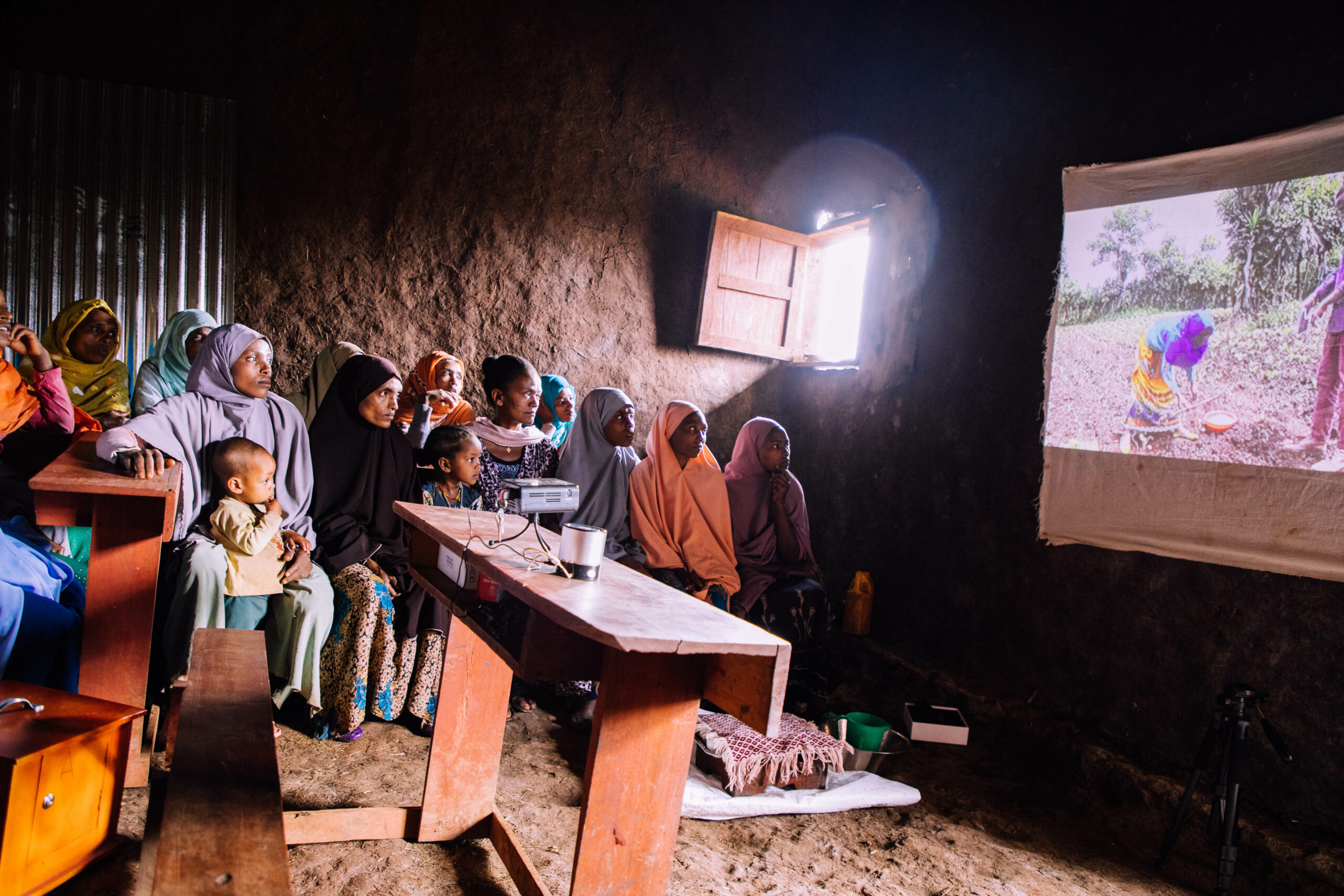 s that engaging institutions in change processes is critical to removing structural barriers that reinforce gender norms. We are committed to support government partners in implementing strategies that advance women’s access to agricultural extension services by acknowledging the power of incentives and informal systems that reinforce norms. Such initiatives transcend Digital Green’s project activities and have the capability to make the whole agriculture extension service more gender intentional. One of the mechanisms of supporting the government to reach more women farmers in accessing agriculture extension service is by enhancing extension agents’ knowledge on gender. We empower Development Agents to start challenging the different gender stereotypes while producing agricultural extension videos. By creating awareness among extension agents who closely work with Digital Green, and by casting women farmers in our videos, we are challenging such stereotypes for the better.
s that engaging institutions in change processes is critical to removing structural barriers that reinforce gender norms. We are committed to support government partners in implementing strategies that advance women’s access to agricultural extension services by acknowledging the power of incentives and informal systems that reinforce norms. Such initiatives transcend Digital Green’s project activities and have the capability to make the whole agriculture extension service more gender intentional. One of the mechanisms of supporting the government to reach more women farmers in accessing agriculture extension service is by enhancing extension agents’ knowledge on gender. We empower Development Agents to start challenging the different gender stereotypes while producing agricultural extension videos. By creating awareness among extension agents who closely work with Digital Green, and by casting women farmers in our videos, we are challenging such stereotypes for the better.
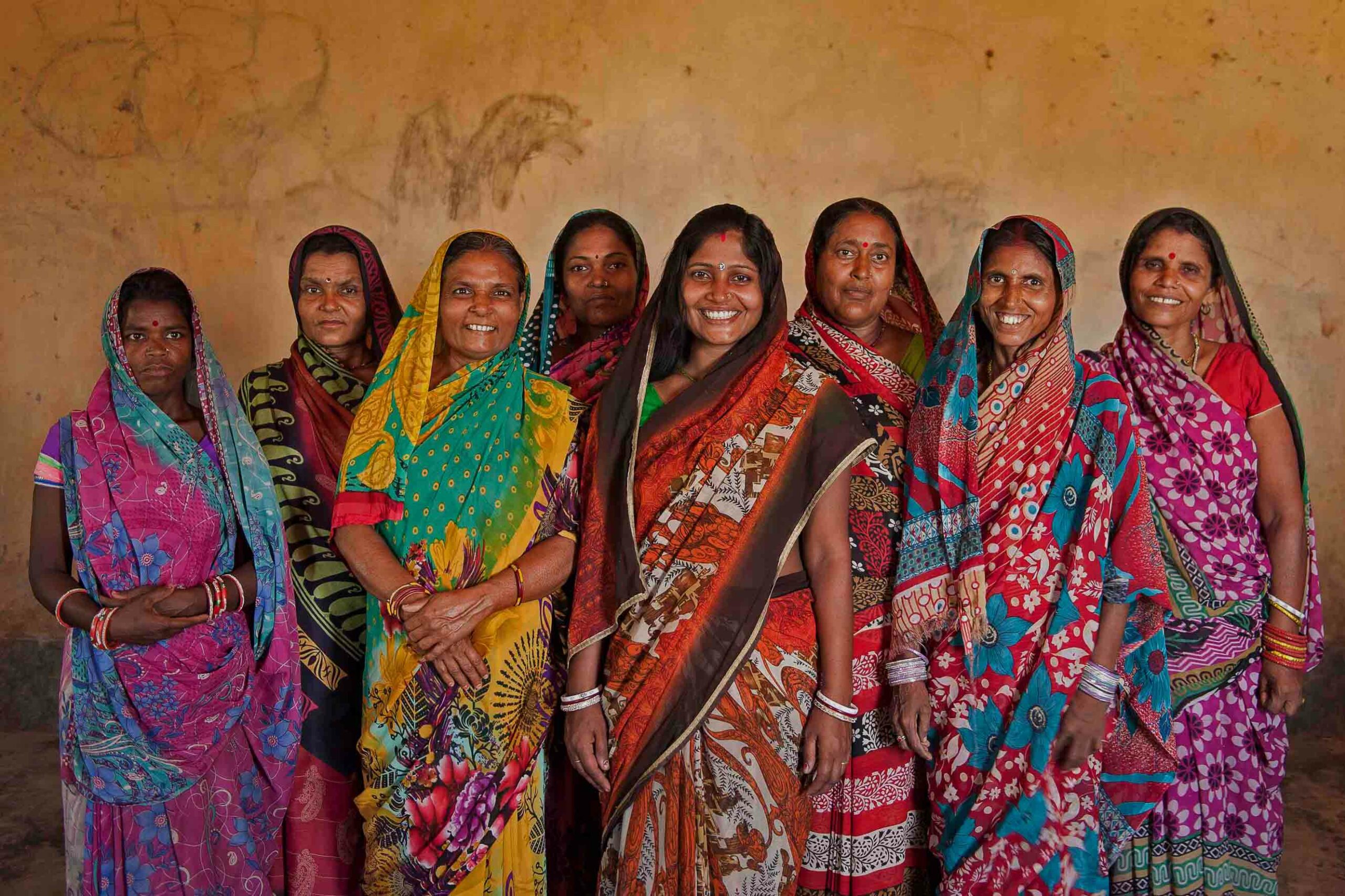
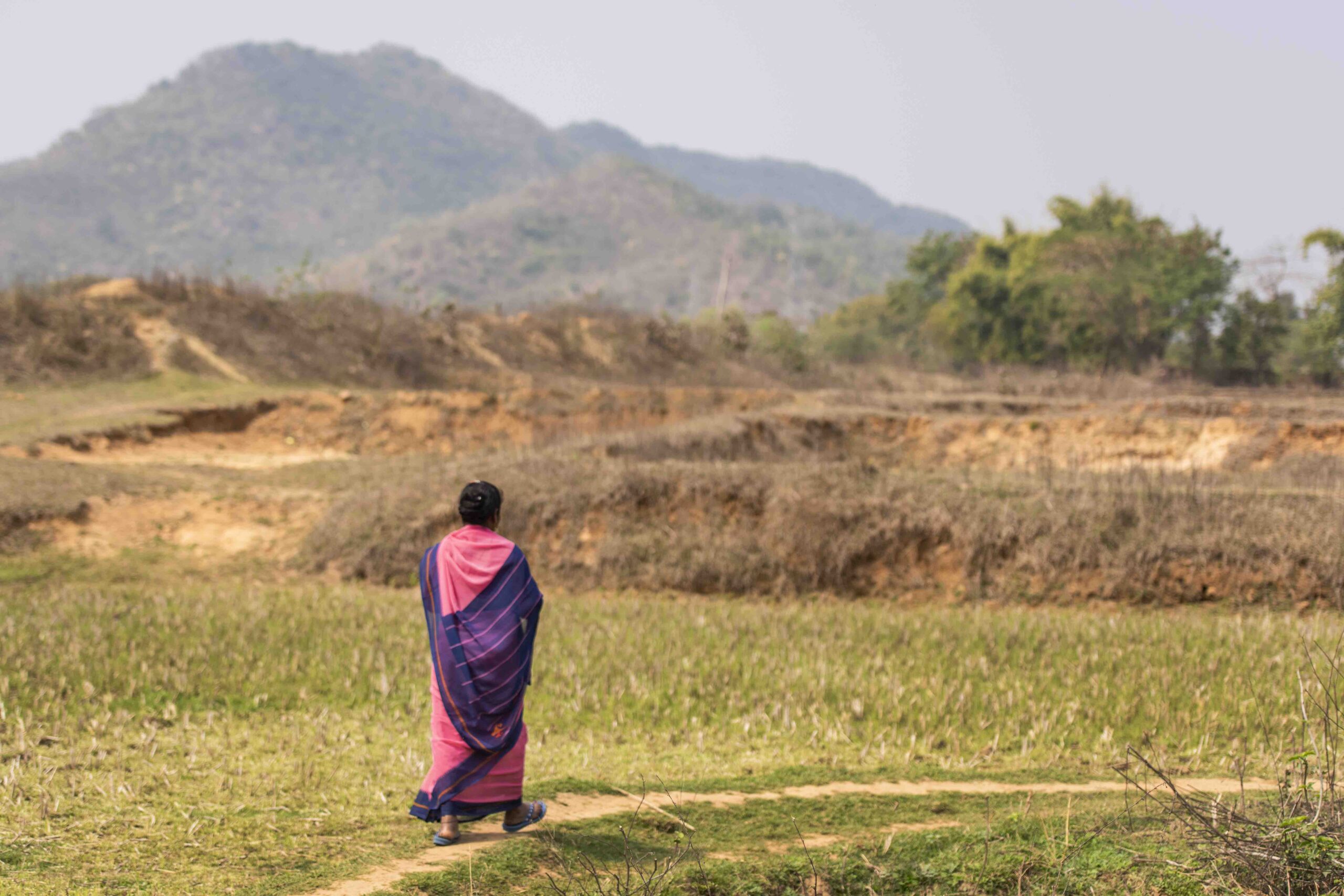 Even after all this time, she still ensures that she goes for daily home visits and that all necessary support is given to families at any point of time. Her level of care towards mothers has extended to the point where once a mother had a delivery complication, she even donated her blood to save her life. Her dedication has cemented her position as an influencer within her community. During the pandemic, she kept at it by sharing videos via Whatsapp, and continuing to support families for anything that they needed.
Even after all this time, she still ensures that she goes for daily home visits and that all necessary support is given to families at any point of time. Her level of care towards mothers has extended to the point where once a mother had a delivery complication, she even donated her blood to save her life. Her dedication has cemented her position as an influencer within her community. During the pandemic, she kept at it by sharing videos via Whatsapp, and continuing to support families for anything that they needed.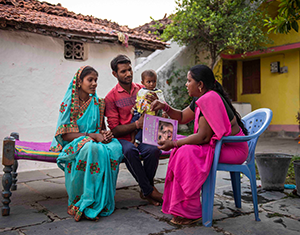 Health is never just physical, it is also about growing up in a healthy household that allows a child to feel loved, secure, and physically healthy. In our society, more than anyone else, mothers are responsible for caring for the wellbeing of their children, and raising them in a healthy household, and so they must be educated and made aware of optimal health and nutrition practices. To build a truly equitable society, women must be allowed to have agency on how they plan out their families and futures.
Health is never just physical, it is also about growing up in a healthy household that allows a child to feel loved, secure, and physically healthy. In our society, more than anyone else, mothers are responsible for caring for the wellbeing of their children, and raising them in a healthy household, and so they must be educated and made aware of optimal health and nutrition practices. To build a truly equitable society, women must be allowed to have agency on how they plan out their families and futures.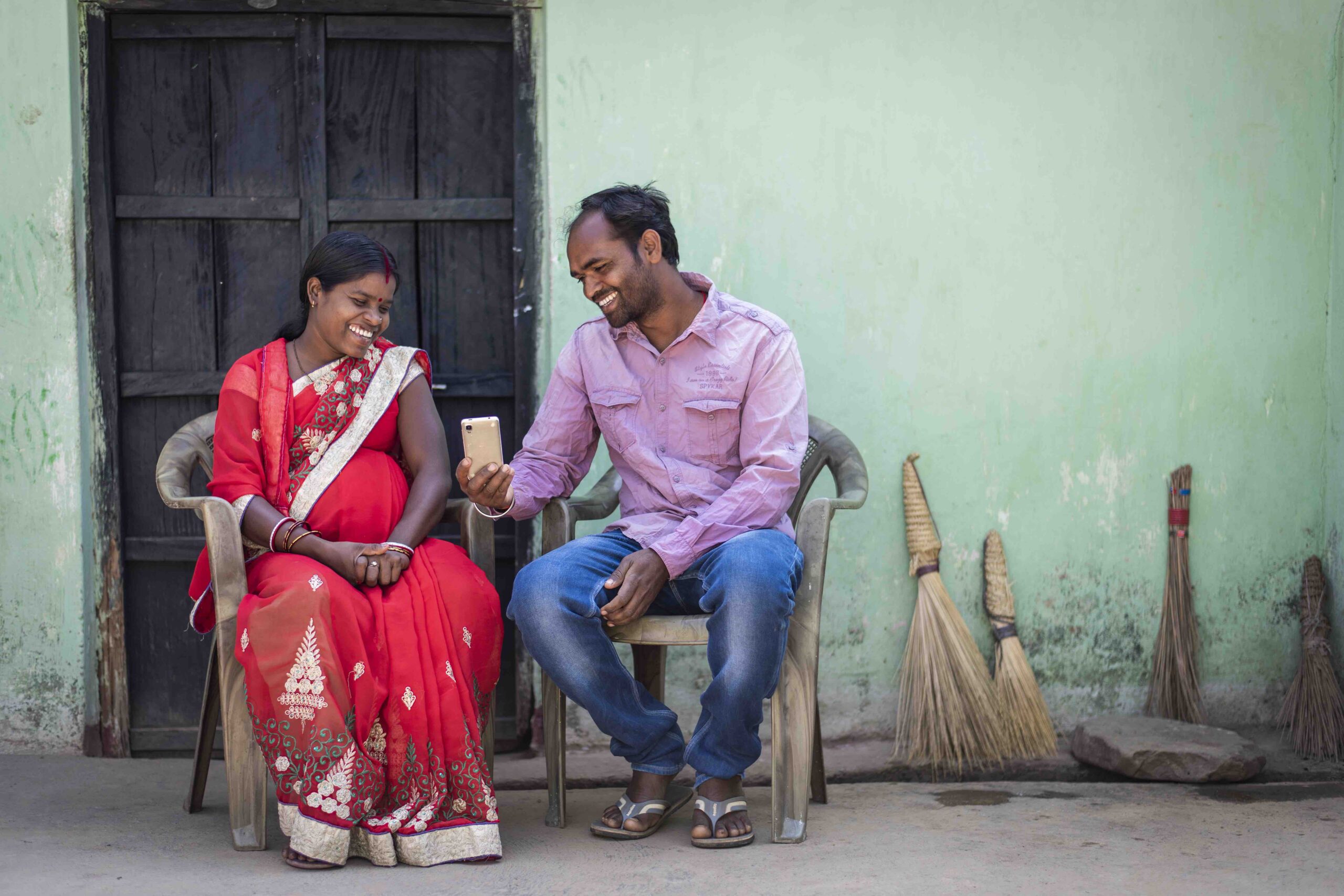 Similarly, Project Samvad has not just been about sharing information through digital approaches, but how this method of sharing information, and the knowledge in itself can transform the communities that we have worked in for the past six years, and give them the hope for a better and healthier tomorrow. For example, by simply sharing an instructional video with targeted women in the community via Whatsapp, it is not just the availability of the content but the fact that at any given moment, it will only take a click of a button to access information that can change the quality of life of these women and children.
Similarly, Project Samvad has not just been about sharing information through digital approaches, but how this method of sharing information, and the knowledge in itself can transform the communities that we have worked in for the past six years, and give them the hope for a better and healthier tomorrow. For example, by simply sharing an instructional video with targeted women in the community via Whatsapp, it is not just the availability of the content but the fact that at any given moment, it will only take a click of a button to access information that can change the quality of life of these women and children.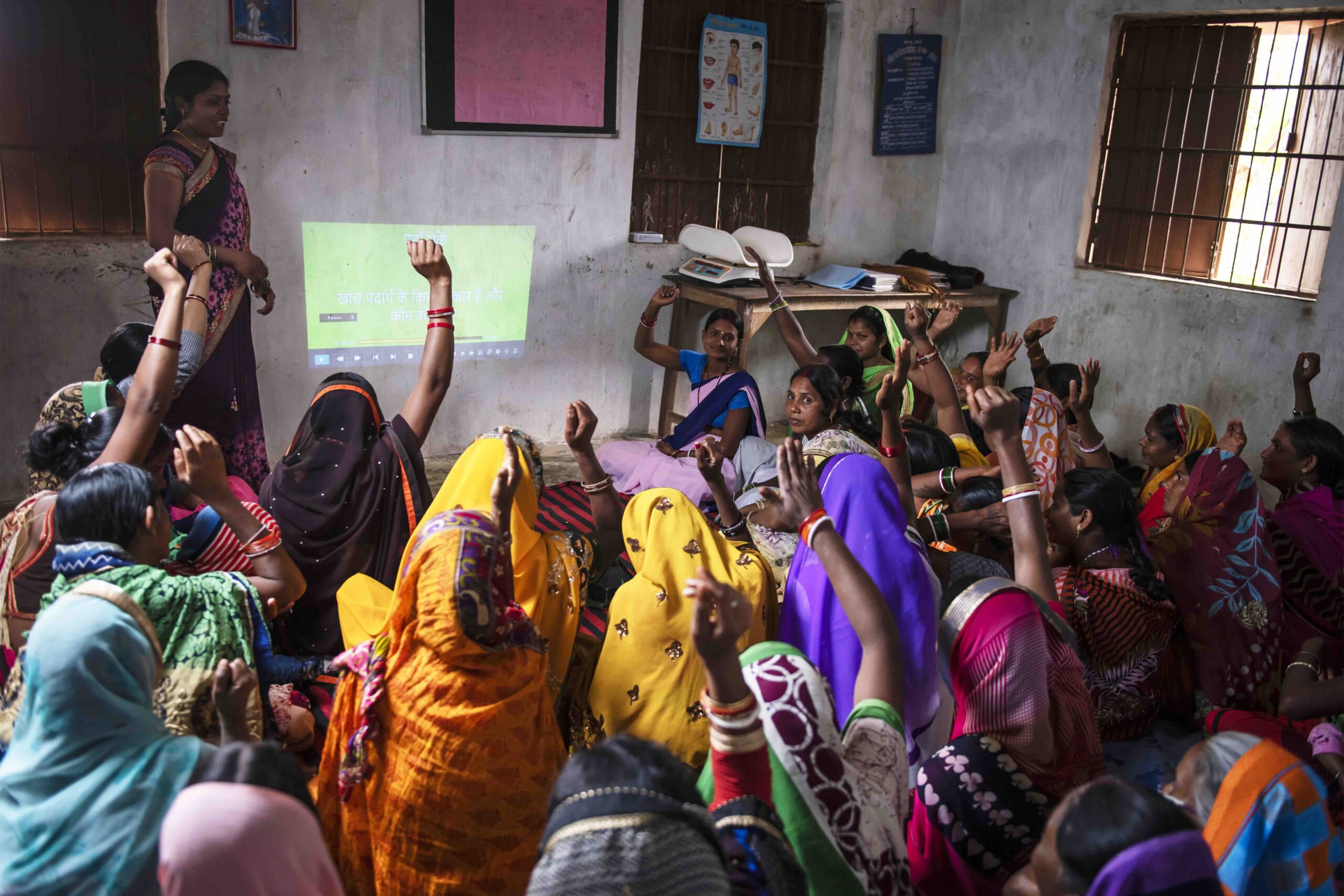 During the project implementation period, the exposure of women to digital dissemination channels gradually increased from 32% in July 2018 to 96% by December 2018. From the first survey conducted in September 2018 to the latest one in January 2020, the percentage of women and men who knew at least three different modern family planning methods grew from 39.1% to 76.3%.
During the project implementation period, the exposure of women to digital dissemination channels gradually increased from 32% in July 2018 to 96% by December 2018. From the first survey conducted in September 2018 to the latest one in January 2020, the percentage of women and men who knew at least three different modern family planning methods grew from 39.1% to 76.3%.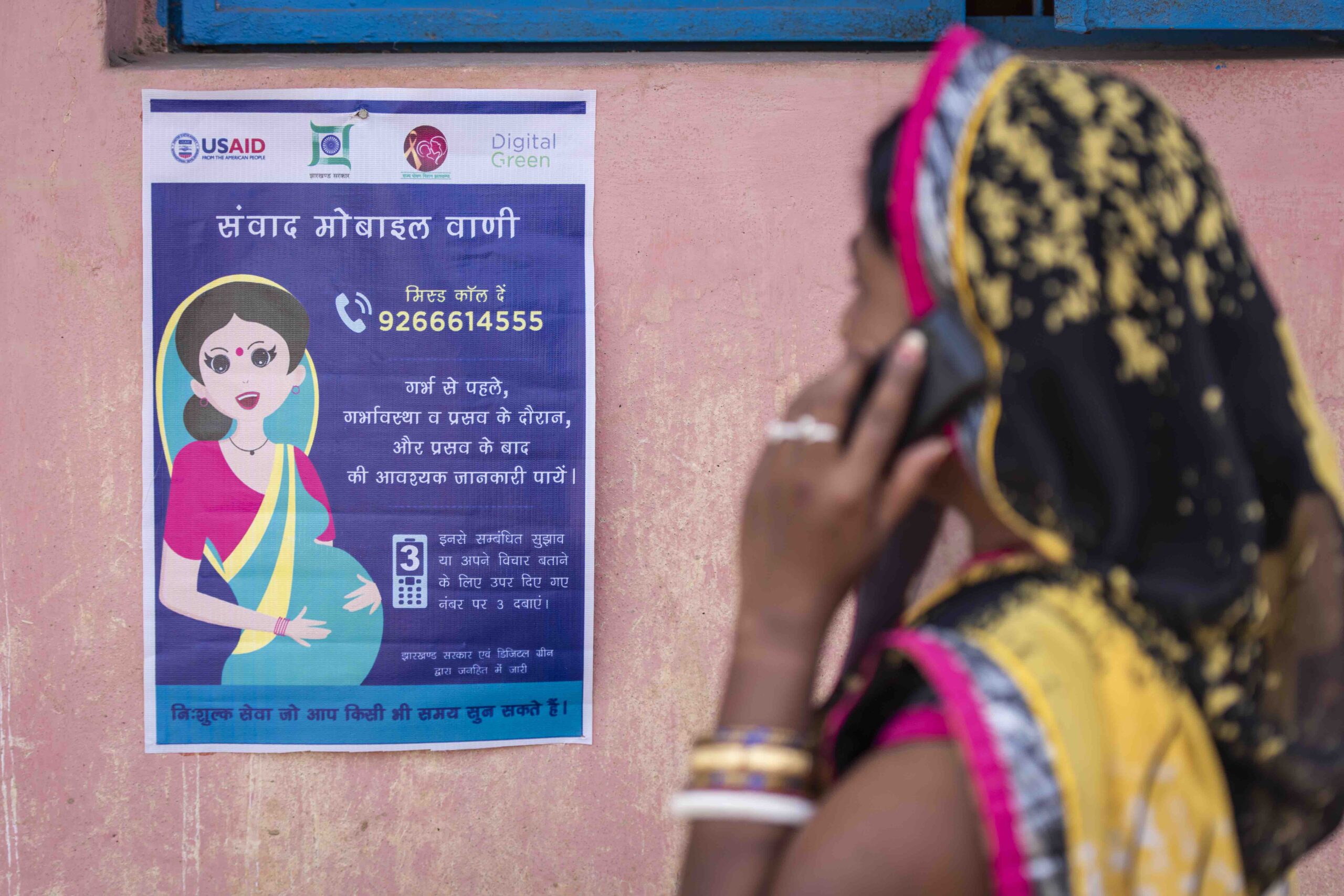 Project Samvad has generated a lot of interest and insights in its duration. Our key takeaways are that the proven community video approach complemented by other digital channels such as Whatsapp and IVRS has rapidly scaled up impact amongst local communities and can be applied to any context, sector, and geography. We have found that using technology builds an intrinsic strength at horizontal as well as vertical levels – not only do they facilitate dialogues and joint learning within the community, they also serve as an interface between health system structures and the women beneficiaries.
Project Samvad has generated a lot of interest and insights in its duration. Our key takeaways are that the proven community video approach complemented by other digital channels such as Whatsapp and IVRS has rapidly scaled up impact amongst local communities and can be applied to any context, sector, and geography. We have found that using technology builds an intrinsic strength at horizontal as well as vertical levels – not only do they facilitate dialogues and joint learning within the community, they also serve as an interface between health system structures and the women beneficiaries.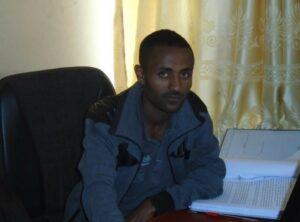
 Tesfu Altaseb, Digital Green field coordinator in Amhara region, says,
Tesfu Altaseb, Digital Green field coordinator in Amhara region, says, 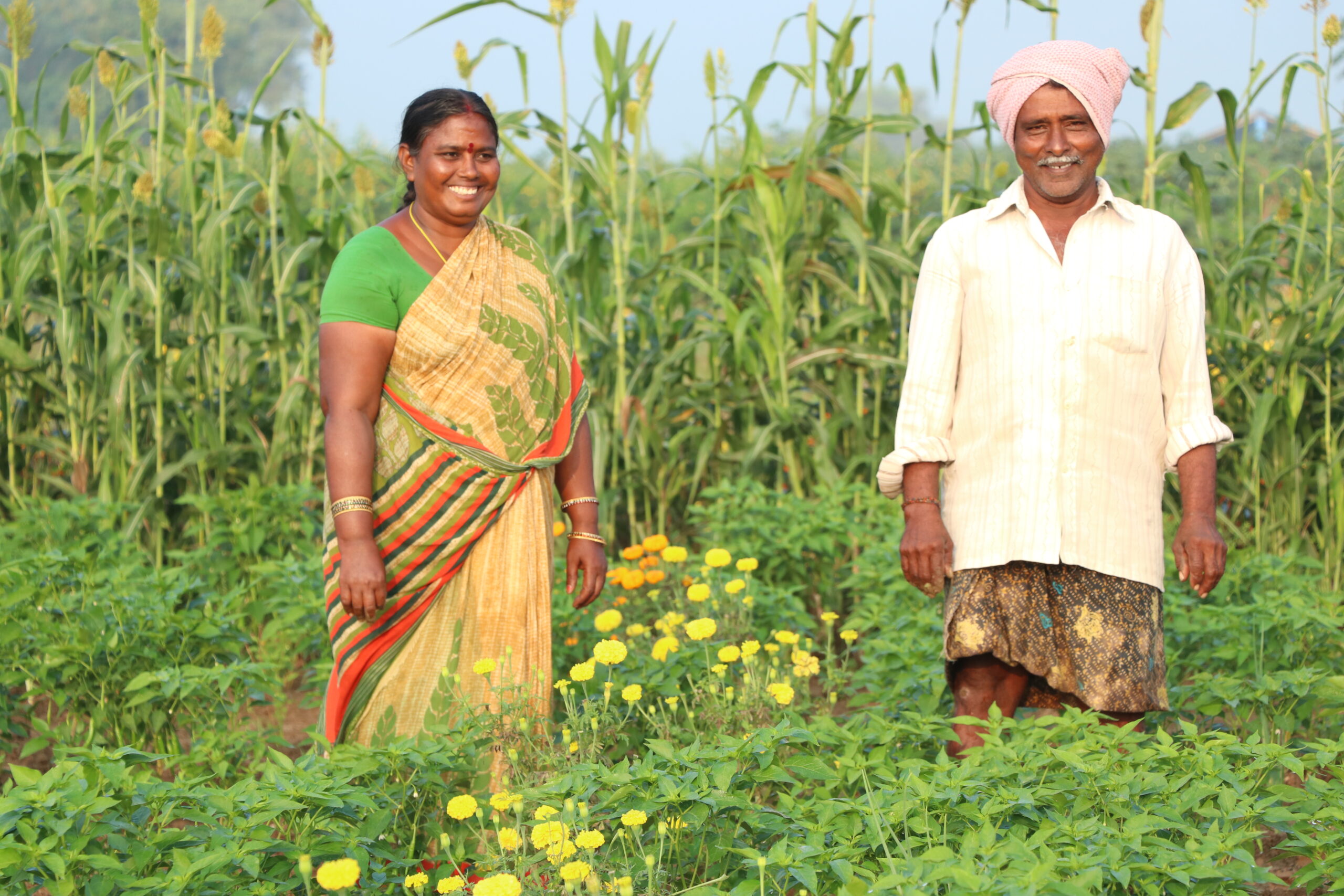
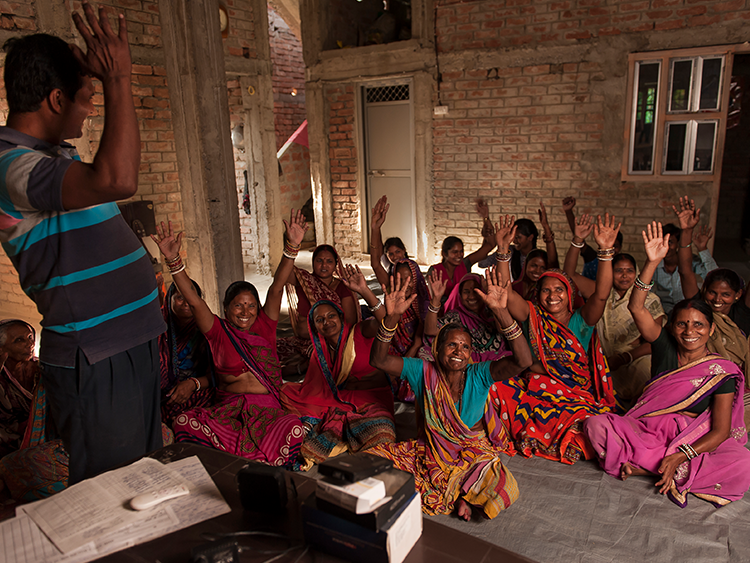

 to Digital Green for their support in enhancing the capacity of our women farmers and helping them earn a better livelihood. We look forward to a fruitful engagement with them in the coming days.”
to Digital Green for their support in enhancing the capacity of our women farmers and helping them earn a better livelihood. We look forward to a fruitful engagement with them in the coming days.”